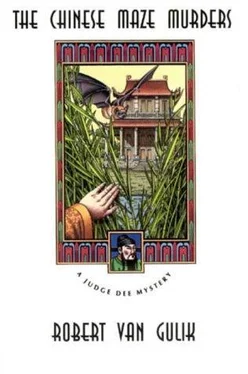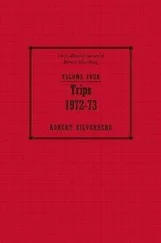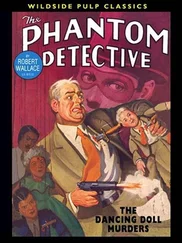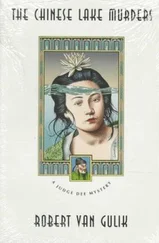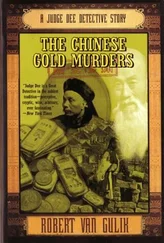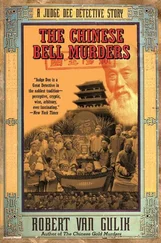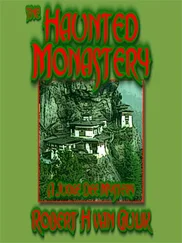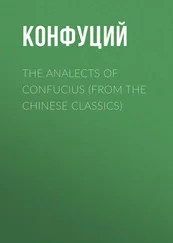"Go away, brother, I am resting. Last night I had a few drinks with Woo. Since it had grown late I decided to stay overnight in that wine shop, hoping that I would learn more about Woo's activities. I walked back here half an hour ago."
Tao Gan gave him a doubtful look. Then he said impatiently:
"Come along! You must hear my report to His Excellency and see what I have brought here!"
As he spoke he showed Ma Joong a small package wrapped up in oil paper.
Ma Joong reluctantly rose from his seat. They left the courtyard and entered Judge Dee's private office.
The judge was sitting behind his desk absorbed in a document. Sergeant Hoong was sitting in a corner sipping his morning tea. Judge Dee looked up from his papers.
"Well, my friends", he said, "did our painter go out last night?"
Ma Joong rubbed his big hand over his forehead.
"Your Honour", he said unhappily, "my head feels as if it were full of stones. Tao Gan will be able to present our report!"
Judge Dee shot a searching look at Ma Joong's gaunt features. Then he turned to listen to Tao Gan.
Tao Gan related in detail how he had followed Woo to the "Hermitage of the Three Treasures", and about his curious behaviour there.
When he had finished, Judge Dee remained silent for a while, a deep frown furrowing his brow. Then he exclaimed:
"So the girl did not turn up!"
Sergeant Hoong and Tao Gan looked astonished and even Ma Joong evinced some interest.
The judge took the picture that Woo had given him. He rose and unrolled it on the desk, placing a paper weight on either end.
Then Judge Dee took a few sheets of writing paper and covered the picture up in such a way that only the face of the goddess Kwan Yin was visible.
"Look carefully at this face!", he ordered.
Tao Gan and the sergeant rose. They bent their heads over the picture. Ma Joong was going to leave his footstool also but he sat down again quickly with a look of pain.
Tao Gan said slowly:
"This certainly is an unusual face for a goddess, Your Honour! Buddhist female deities are always depicted with a serene, quite impersonal face. This, however, rather seems a portrait of a living young girl!"
Judge Dee looked pleased.
"That is exactly what it is!", he exclaimed. "Yesterday when I looked over Woo's pictures it struck me that all his paintings of Kwan Yin show the same, very human face.
I concluded that Woo must be deeply in love with a certain girl. Her image is continually in his mind. Thus whenever he paints a female deity he gives it the features of this girl, probably without realizing it himself. Since Woo undoubtedly is a great artist, this picture must be a good portrait of that mysterious girl. It shows a definite personality.
I am convinced that this girl is the explanation why Woo did not leave Lan-fang. She may provide the clue that links him with the murder of General Ding!"
"It should not be too difficult to trace this girl", Sergeant Hoong observed. "We might have a look around in the neighbourhood of that Buddhist temple."
"That", Judge Dee said, "is a very good idea. All three of you will imprint this picture on your memory!"
Ma Joong rose with a groan and had a look at the picture too.
He pressed his hands against his temples and closed his eyes.
"What ails our wine bibber?", Tao Gan inquired nastily.
Ma Joong opened his eyes.
"I am sure", he said slowly, "that I have met that girl once. Somehow or other her face is familiar to me. But try as I may I cannot remember when and where I saw her!"
Judge Dee rolled the scroll up again.
"Well", he said, "when your head is clear it may come to your mind. Now what have you brought there, Tao Gan? "
Tao Gan opened the package with great care. It contained a wooden board with a small square sheet of paper pasted on its surface.
He put it in front of the judge saying:
"Your Honour please be careful! The thin paper is still moist and will easily tear. Early this morning as I was peeling off the lining of the Governor's painting, I discovered this sheet pasted behind the lining of the brocade mounting. This is the testament of Governor Yoo!"
The judge bent forward over the small writing.
Then his face fell. He leaned back in his chair and angrily tugged at his whiskers.
Tao Gan shrugged his shoulders.
"Yes, Your Honour, appearances often prove deceptive. That Mrs. Yoo has been trying to fool us."
The judge pushed the board over to Tao Gan.
"Read it aloud!" he ordered curtly.
Tao Gan read:
"I, Yoo Shou-chien, feeling the end of my days draw near, hereunder state my last will and testament.
Since my second wife Mei has been guilty of adultery and the son she gave birth to is not my flesh and blood, all my possessions shall go to my eldest son Yoo Kee who shall continue the tradition of our ancient house."
Signed and sealed: Yoo Shou-chien
After a slight pause Tao Gan remarked:
"Of course I compared the seal impressed on this document with the Governor's seal on the painting itself. They are perfectly identical."
A deep silence reigned.
Then Judge Dee leaned forward and crashed his fist on the table.
"Everything is completely wrong!", he exclaimed.
Tao Gan gave Sergeant Hoong a doubtful look. The sergeant imperceptibly shook his head. Ma Joong goggled at the judge.
Judge Dee said with a sigh:
"I shall explain to you why I am certain that there is something fundamentally wrong here.
I depart from the premise that Yoo Shou-chien was a wise and farsighted man. He fully realized that his eldest son Yoo Kee had a wicked character and that he was violently jealous of his young half-brother; until Yoo Shan was born Yoo Kee had for years considered himself as the only heir. When the Governor's end drew near his last thoughts were how to protect his young widow and his infant son against the wiles of Yoo Kee.
The Governor knew that if he divided his property equally between his two sons, not to speak of disinheriting Yoo Kee, the latter would certainly harm his infant half-brother and perhaps even kill him to appropriate his part of the inheritance. Therefore the Governor made it appear as if he disinherited Yoo Shan."
Sergeant Hoong nodded and gave Tao Gan a significant look.
"At the same time", the judge went on, "he concealed in this picture the proof that half or the greater part of his property should go to Yoo Shan. This is evident from the curious formula which the old Governor employed when he expressed his last will. He said clearly that the scroll should go to Yoo Shan, and 'the rest' to Yoo Kee; he carefully refrained from defining this 'rest'.
The Governor's idea was through this hidden testament to protect his infant son until he would have grown into a young man and could take possession of his inheritance. He hoped that after ten years or so a wise magistrate would discover the hidden message of the scroll and restore to Yoo Shan his rightful inheritance. It is therefore that he instructed his widow to show the scroll to every new magistrate that would be appointed to this district."
"That instruction, Your Honour", Tao Gan interrupted, "may never have been given. We have only Mrs. Yoo's word for it. In my opinion this document proves clearly that Yoo Shan is an illegitimate child. The Governor was a kind and forbearing man, he wished to prevent Yoo Kee from avenging the wrong done to his father. At the same time he wished to make sure that in due time the truth could be established beyond doubt. This is why he concealed the document in this scroll. When a clever magistrate would have discovered it he would be able to dismiss any claim that Mrs. Yoo might try to file against Yoo Kee."
The judge had listened carefully to this argument. He asked:
Читать дальше
